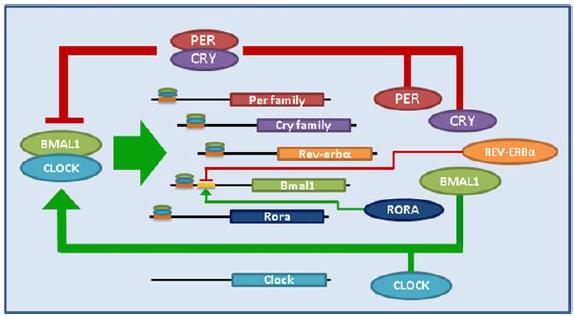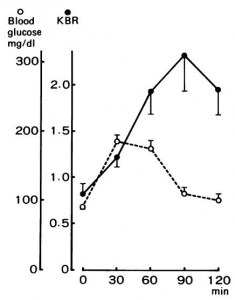The control of circadian gene expression is complex, with layer upon layer of suppressors and enhancers, numerous transcription factors, and a lot of interactions. A gross oversimplification: Clock and Bmal1 are positive regulators of circadian gene expression; Per and Cry are negative (you don’t really need to know any of this).

From Birky and Bray, 2014
Some pretty cool progress has been made in examining the effects of global and tissue-specific deletion of circadian rhythm-related transcription factors. Bear with me 🙂
For example, global Bmal1 knockout mice (ie, mice that don’t express Bmal1 anywhere in their whole body. Zero Bmal1. Nil.) (Lamia et al., 2008). These mice are obese, and exhibit impaired glucose tolerance yet improved insulin sensitivity.


